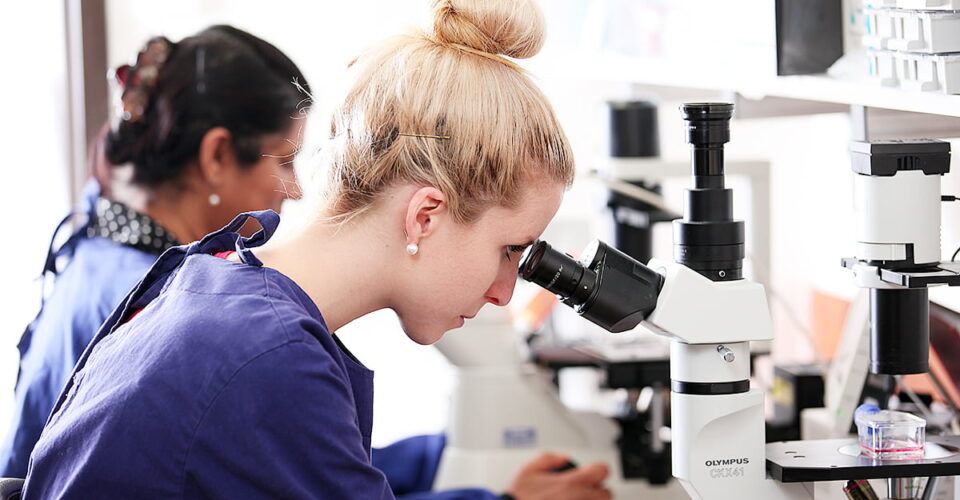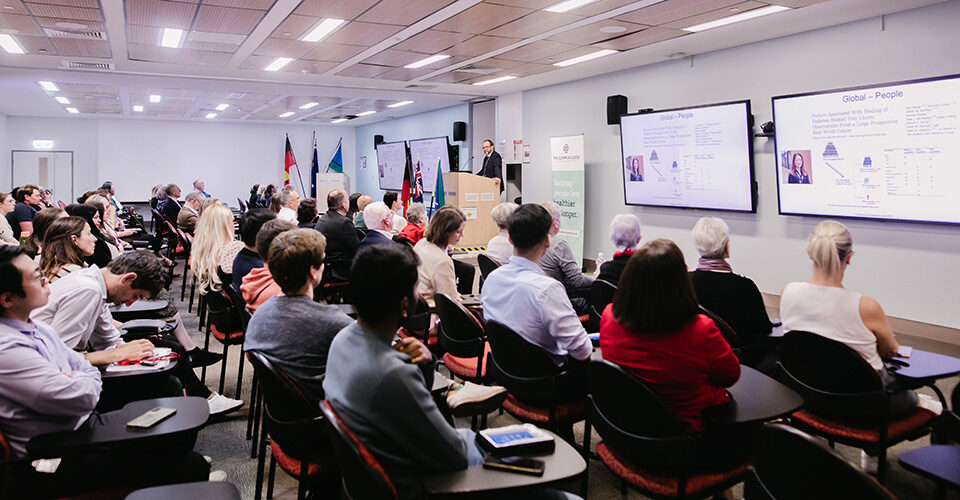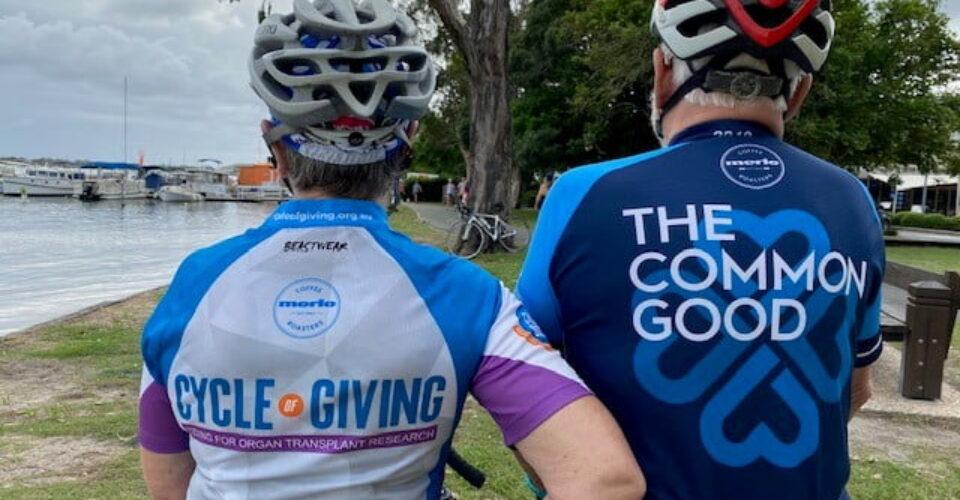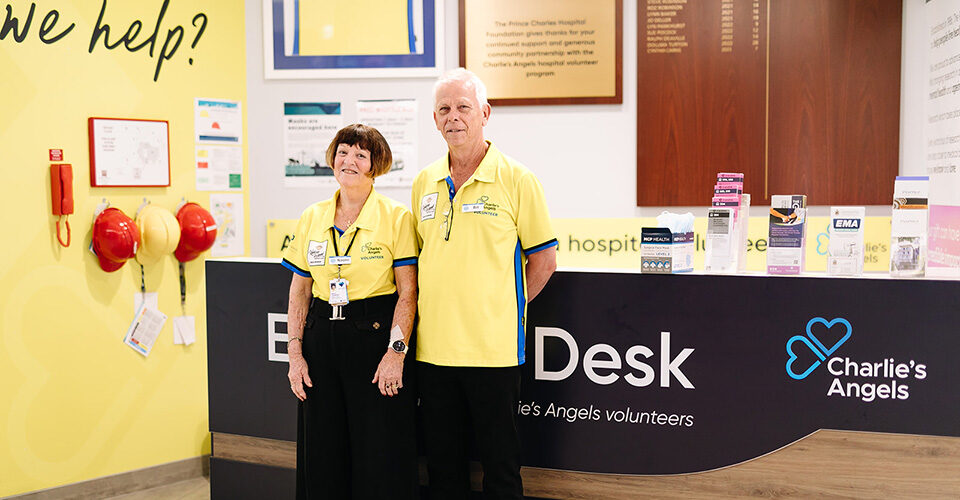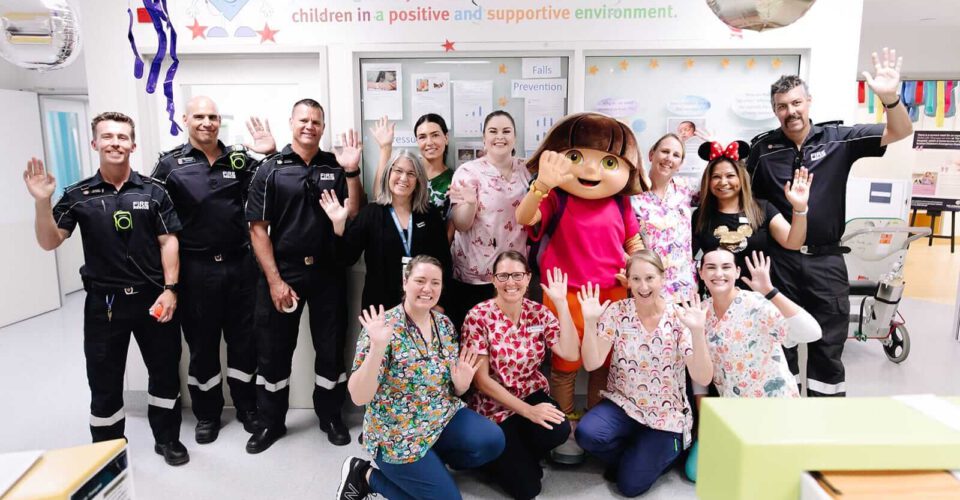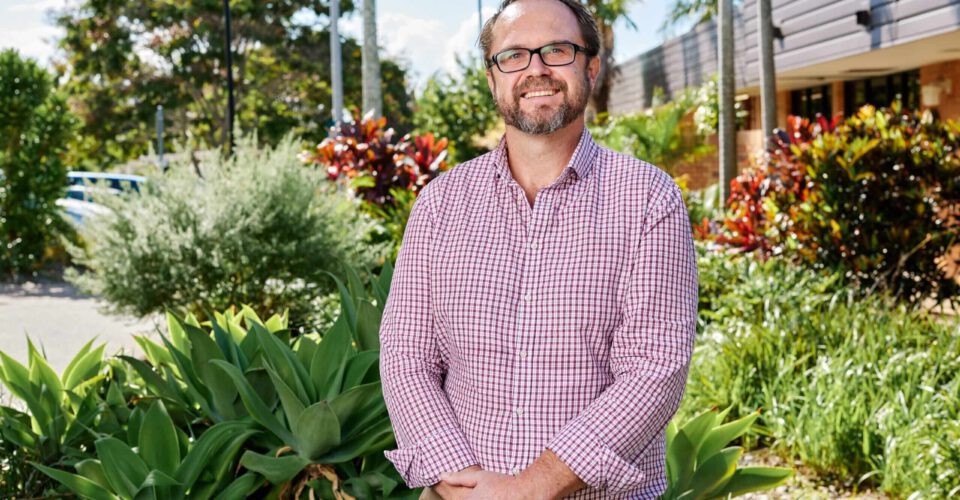We can understand how shocking and distressing it could be to receive an Idiopathic Pulmonary Fibrosis (IPF) diagnosis.
In this blog, we aim to answer a few questions you may have about what IPF is, its treatment and why research into IPF is so crucial.
What is Idiopathic Pulmonary Fibrosis (IPF)?
Pulmonary Fibrosis is a condition where lung tissue becomes inflamed, leading to scarring or thickening (fibrosis). This hardening of the lung tissue makes it more difficult for a person to breathe. They may also experience fatigue and have a persistent cough.
When there is no known cause for this lung disease it is referred to as Idiopathic Pulmonary Fibrosis (IPF).
“This person has developed progressive scarring of their lungs and that’s come on for no reason. So, there’s nothing in their history at all that gives you a clue as to why that’s happening,” said Professor Peter Hopkins, Director Queensland Lung Transplant Service.
“IPF has many different potential drivers, and many are not directly patient-related. It is a complex disease that may be related to genetic profile, sometimes family history, occupation, and in general, just being unlucky irrespective of your lifestyle. It is a disease that afflicts many people at random.”
Along with having no obvious cause, IPF is incurable, progressive, and serious.
While it is also considered a rare lung disease, it does, in fact, touch the lives of thousands of Australians. According to the Institute for Respiratory Health, each year there are over 1,250 people diagnosed with IPF in Australia.
The disease may progress at different rates for different patients. For some, the progress of scarring is slow, whereas for others, the deterioration of their lungs is rapid.
Diagnosing Idiopathic Pulmonary Fibrosis
As the signs and symptoms of IPF are similar to other lung diseases or conditions relating to different body parts, it can be difficult to diagnose.
“The classic presentation is shortness of breath, and not being able to do the things they were able to do 12 months ago. And that is very undifferentiated. So that can be a whole spectrum of diagnoses – not just lung disease but also heart disease, lack of physical fitness etcetera. And so, we typically see a delay in diagnosis -that would be pretty standard. Sometimes we have referrals where a person has been treated for asthma, told to lose weight or increase their exercise. Although, I think that the delay in diagnosis is improving. The public campaigns and the availability of anti-fibrotic medication have raised the profile of IPF,” said Prof Hopkins.
IPF Treatment
In recent years, medical advancements have helped to improve the quality of life for those with IPF and slow the rate of scarring.
“We are in an era of anti-fibrotic medications. They’re not a cure, but they are very good at slowing the disease. They have really transformed the survival with this condition,” said Prof Hopkins.
“The result is people are living longer, and so, the age of transplant patients coming through at referral is getting higher as well.”
Professor Hopkins said recognising signs and symptoms of IPF early and seeking a professional diagnosis is also vital.
“The earlier you intervene, the better clinical response you get from the anti-scarring medication. On the other hand, if you’re coming to us late, we’re starting the anti-fibrotics when the scarring is really established.”
A large proportion of people who are diagnosed with IPF will be placed on the transplant waiting list.
“Transplantation brings its own challenges and problems. So, the best thing we can do is not transplant and look for alternatives. Not just with IPF, but all conditions, and we exhaust all those alternatives,” Prof Hopkins said.
Research into IPF
Ongoing medical research is crucial to continue to improve the quality of life for people with IPF and their lifespan.
“It’s important to reiterate that anti-fibrotic medications are not a cure. So, we need to do a lot more clinical trials and research to halt the fibrosis. We’ve just put the brakes on, but we haven’t actually stopped it,” said Prof Hopkins.
“I can’t imagine there will ever be a treatment that reverses scar tissue. You have a scar on your skin, you’ve got that for life. But I could imagine a time when we might stop scar tissue in its tracks – and that would be ground-breaking.”
Previously, patients with Cystic Fibrosis (CF) accounted for a considerable percentage of lung transplant recipients. However, advancements in CF treatments in recent years are changing the prognosis for many of them.
“Historically, 38% of all of our transplants have been CF. We now have no one listed on our organ transplant list for CF, and the last CF transplant we did was 18 months ago,” Professor Hopkins said.
And with significantly more funding for research into IPF in the coming years, many lives could be changed.
“What could happen is we could emulate what’s happened in Cystic Fibrosis, where actually one day these patients don’t need an organ transplant,” Prof Hopkins said.
Click here to learn more about the lung disease and IPF research underway by the world-renowned researchers supported by The Common Good.
